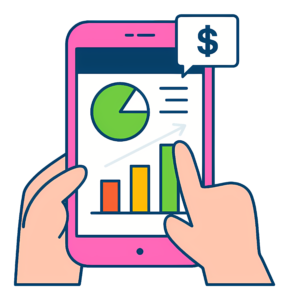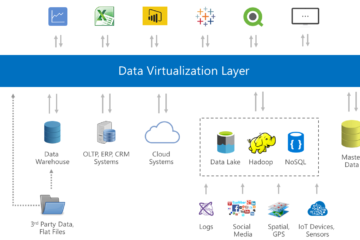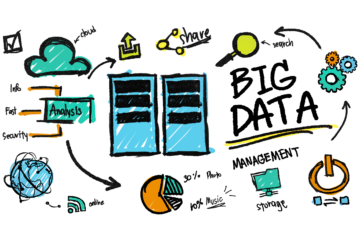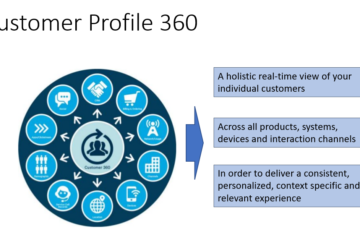Leveraging Data Applications for Enhanced Business Productivity: Transforming Operations Across Industries
Introduction
In today’s data-driven world, businesses are increasingly turning to data applications to streamline operations, gain insights, and drive productivity. These applications harness the power of data analytics, machine learning, and artificial intelligence to optimize processes, make informed decisions, and stay ahead of the competition. This article explores how data applications are revolutionizing business operations across various industries, with detailed use-cases showcasing their impact on productivity enhancement.

Company: Clear Data Science Limited
1. Retail Industry
1.1 Predictive Analytics for Inventory Management
- Company: Walmart
- Use Case: Walmart utilizes predictive analytics to forecast demand and optimize inventory levels in its stores. By analyzing historical sales data, seasonal trends, and external factors like weather patterns, Walmart can anticipate consumer preferences and adjust inventory accordingly, reducing stockouts and excess inventory while improving product availability and sales.
1.2 Personalized Marketing with Customer Segmentation
- Company: Amazon
- Use Case: Amazon leverages data applications to segment customers based on their browsing history, purchase behavior, and demographic information. By tailoring marketing campaigns and recommendations to individual preferences, Amazon enhances customer engagement, increases conversion rates, and drives revenue growth, ultimately boosting productivity in marketing efforts.
2. Manufacturing Industry
2.1 Predictive Maintenance for Equipment Optimization
- Company: General Electric (GE)
- Use Case: GE employs predictive maintenance algorithms to monitor equipment health in real-time, predicting potential failures before they occur. By analyzing sensor data from industrial machinery, GE can schedule maintenance proactively, minimize downtime, and optimize asset utilization, leading to increased productivity and cost savings for manufacturers.
2.2 Quality Control Automation in Production Processes
- Company: Toyota
- Use Case: Toyota integrates data applications with production lines to automate quality control processes. By using machine vision and AI algorithms to inspect parts for defects and deviations, Toyota ensures consistent product quality while reducing manual labor and inspection time, thereby enhancing productivity and efficiency in manufacturing operations.
3. Healthcare Industry
3.1 Data-Driven Patient Care and Treatment Planning
- Company: Mayo Clinic
- Use Case: Mayo Clinic leverages data applications to analyze patient data, medical records, and clinical research to personalize treatment plans and optimize patient care. By utilizing predictive analytics and AI algorithms, Mayo Clinic can identify the most effective treatments for individual patients, improve health outcomes, and increase productivity in healthcare delivery.
3.2 Remote Monitoring and Telemedicine Solutions
- Company: Philips Healthcare
- Use Case: Philips Healthcare utilizes data applications to develop remote monitoring and telemedicine solutions for chronic disease management. By collecting and analyzing patient data from wearable devices and medical sensors, Philips enables healthcare providers to monitor patients remotely, intervene proactively, and reduce hospital readmissions, ultimately enhancing productivity and efficiency in healthcare services.
4. Financial Services Industry
4.1 Fraud Detection and Risk Management
- Company: JPMorgan Chase
- Use Case: JPMorgan Chase employs data applications for fraud detection and risk management in financial transactions. By analyzing transactional data in real-time and using machine learning algorithms to detect anomalies and suspicious patterns, JPMorgan Chase can prevent fraudulent activities, mitigate risks, and enhance productivity in financial operations.
4.2 Personalized Financial Services and Recommendations
- Company: Charles Schwab
- Use Case: Charles Schwab utilizes data applications to offer personalized financial services and investment recommendations to its clients. By analyzing customer financial data, goals, and risk preferences, Charles Schwab can provide tailored investment advice, optimize portfolio allocation, and improve client satisfaction and loyalty, thereby increasing productivity in wealth management services.
Conclusion
In conclusion, data applications are transforming business operations across industries, driving productivity enhancement and competitive advantage. From predictive analytics in retail to predictive maintenance in manufacturing, from personalized healthcare to personalized financial services, organizations are harnessing the power of data to optimize processes, make informed decisions, and deliver value to customers. As businesses continue to embrace data-driven approaches, the potential for innovation and growth in productivity remains limitless, ushering in a new era of efficiency and effectiveness in the digital age.


